#Dark Ages and Medieval Europe
Text
The Chaucer 2023 Book Awards Winners for Early Historical Fiction
The Chaucer Book Awards recognize emerging new talent and outstanding works in pre-1750s Historical Fiction. The Chaucer Book Awards is a division of the Chanticleer International Book Awards (The CIBAs).
The Chaucer Book Awards competition is named for Geoffrey Chaucer the author of the legendary Canterbury Tales. The work is considered to be one of the greatest works in the English language.…
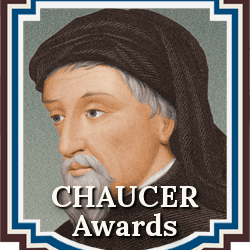
View On WordPress
#1600s#ancient history#Book Award Program#book awards#CAC#Chanticleer Authors Conference#Chanticleer Book Awards#Chanticleer Int&039;l Book Awards#Chanticleer International Book Awards#Chaucer Awards#CHAUCER BOOK AWARDS#Chaucer Contest Update#Chaucer Long LIst#CIBAs#CIBAs Book Awards#Classical#Dark Ages and Medieval Europe#Elizabethan#Grand Prize#Historic Novel Society#Historic Writers of America#Historical Fiction Awards#Historical Fiction contests#Historical Novel Society#HNSA#HWA#including pre-history#Pre-1750s Historical Fiction#Pre-1750s Historical Fiction Book Awards#Prestigious
0 notes
Text
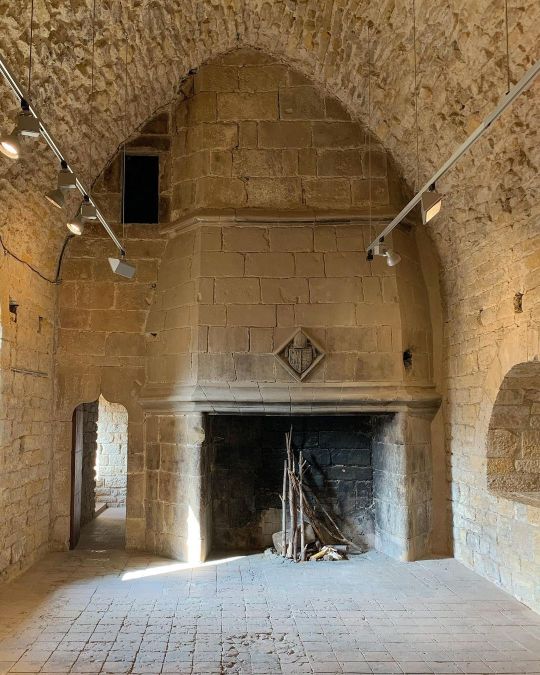
Kitchen in the castle-palace of the Girona Bishops in La Bisbal de l'Empordà (Comarques Gironines, Catalonia).
This castle-palace is a beautiful example of civilian Medieval architecture. It was built in the 12th century, with additions in the 16th and 17th centuries. In this kitchen, you can see the Renaissance fireplace.
Photo by medievalismes on Instagram and Tiktok.
#la bisbal de l'empordà#catalunya#fotografia#arquitectura#medieval#middle ages#renaissance#kitchen#palace#castle#catalonia#europe#travel#travel photography#historical places#historical#dark academia#wanderlust
152 notes
·
View notes
Text
youtube
Piazza Navona, 1657
#piazza navona#rome#italy#1600s#medieval rome#medieval#middle ages#medieval art#medieval ages#dnd#dnd rp#1600s art#reinassance#dark academia#village#cottagecore#villagecore#town rp#ancient rome#roman republic#roman empire#gladiator 2#gladiator ii#ancient city#medieval village#medieval europe#medieval aesthetic#ancient italy#dark souls#assassins creed
2 notes
·
View notes
Photo

Stealing From The Saracens: How Islamic Architecture Shaped Europe
#islam#moorish#gothic#art#history#architecture#castles#cathedrals#mosques#colleges#islamic culture#dark ages#medieval europe#books
35 notes
·
View notes
Text
Looking at recent Cookie Run news, specifically the recent teaser trailer for Golden Cheese finally becoming playable, brings that one joke from Hetalia to mind.
Just, instead of England wondering about his religion, it's Golden Cheese going:
'Am I Egyptian..? Or Meso-American..? FUCK! I don't know...'
#can the current enrollment of designers at DevSis pick cultures and STICK TO THEM?#because Golden Cheese's design screams Aztec/Mayan/Olmec#but instead they're going with 'Golden Age of Egypt'#just like Dark Cacao's and Dark Choco's designs scream 'Dark Medieval Europe'#but instead they went with 'Ancient Korea'#I don't even play the games anymore but God damn!
2 notes
·
View notes
Photo
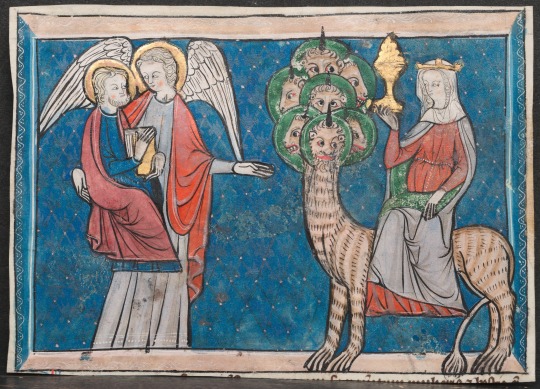
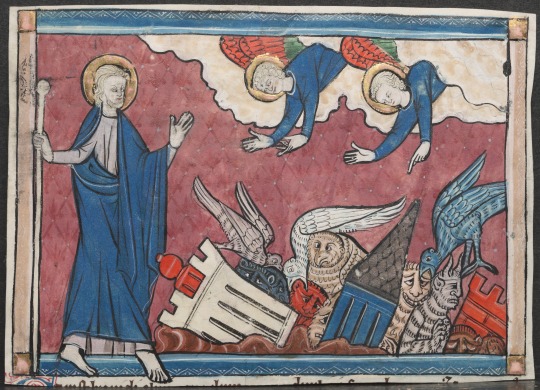
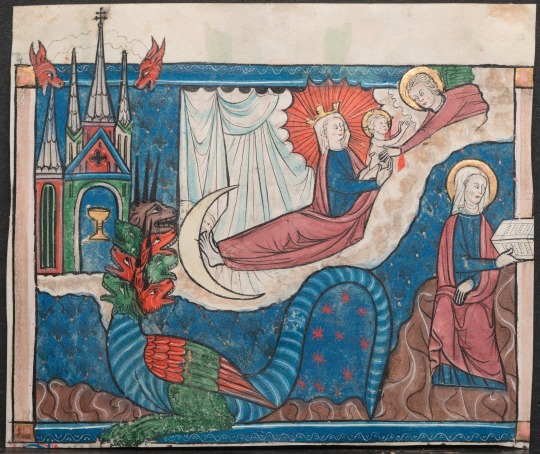
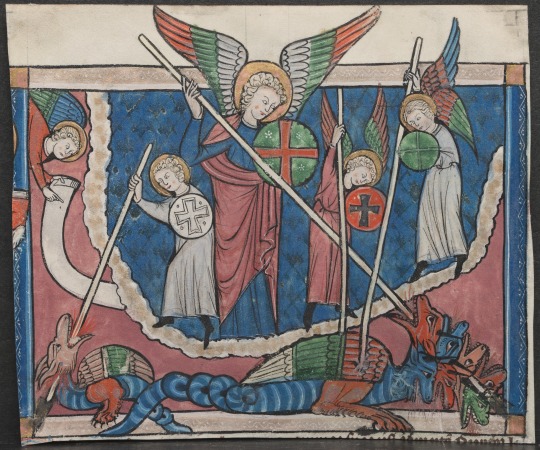
Miniatures from a Manuscript of the Apocalypse, c. 1295. France, Lorraine, 13th century. Ink, tempera, and gold on vellum, at the Cleveland Museum of Art.
Fig. 1: The Woman Upon the Scarlet Beast, Fig. 2: The Fall of Babylon, Fig. 3: The Woman Clothed with the Sun, Fig. 4: The War in Heaven
#Christianity#Medieval#Medieval Europe#Middle Ages#Dark Ages#illuminated manuscript#Bible#Holy Bible#Revelation#Revelations#Book of Revelation#Scarlet Woman#Babylon
26 notes
·
View notes
Quote
Although many books on the Anglo-Saxons do not say much about it, more than ten per cent of England's population were slaves. Slavery was a widespread institution in early medieval Europe, and the sale and export of slaves was one of the main motors of the economy. Since the ninth century the trade's most outstanding exponents had been the Vikings, whose warfare was predicated for the most part on seizing young men and women as merchandise, to be sold either at home in Scandinavia or - very commonly - to Arab merchants in the Middle East. England was one of their principle hunting grounds, so individuals abducted from the coasts of Devon, Wales or Northumbria might eventually find themselves labouring under a desert sun to construct a caliph's palace, or members of a sultan's harem.
Marc Morris, The Norman Conquest, (2018) p.25
#marc morris#anglo-saxon#saxon#vikinings#9th century#medieval#dark ages#slavery#slave#slave trade#history books#medieval europe#medieval middle east
20 notes
·
View notes
Text
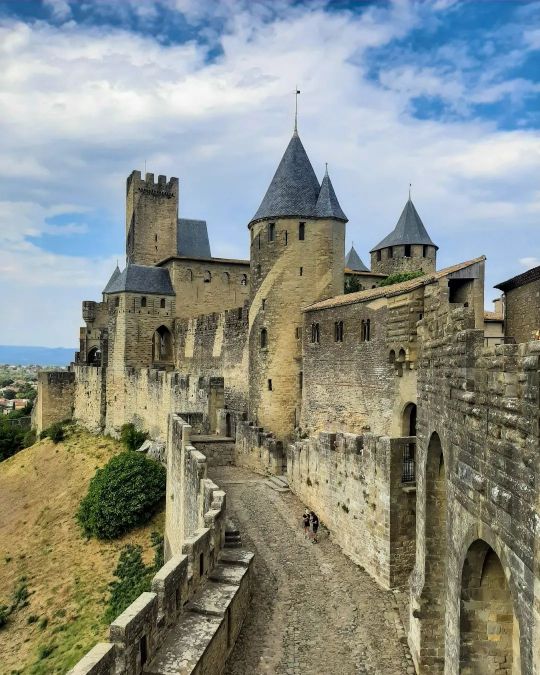
I'm the king of the castle
and you're a dirty rascal
Photo : Château de Carcassonne, France, August 2022
#my photo#myphotos#my photography#myphotography#photo#travel#europe#travelling#traveling#France#francais#French#architecture#medieval#castle#middle ages#dark academism#dark academia#gothic#goth#explore#hike#voyage#viajeros#King#Queen
13 notes
·
View notes
Text
I don't get why these criminals want to control people with uterus so much. Why having an uterus does make us less of a human? Why so many patriarchal societies all around the world decided this shit? Hell, having an uterus is already a pain in the ass for a lot of us without having to deal with being considered second class citizens.
I'm so sorry for every American who don't get to decide what to do with their body. I'm sorry for everyone around the world that haven't had the right to do what they want with THEIR bodies. This shit is frightening. People like to talk about about how women have no right in the Middle East but really they are just jealous it's not in the name of Christianity. And it's spreading all across the world. It has already widely spread inside the EU too and we did NOTHING. And women rights are far from being the only human rights being violated right now.
This is CRIMINAL. Every law, in every country all around the world, having for only purpose to control another human body is a HUMAN RIGHTS ABUSE.
It's absolutely terrifying to see that everytime women, people of colour, queer people and basically every minority have been gaining a little bit of more human rights that they didn't have previously, the violence against them get even more intense. It's dreadful how they don't want us to live as free and as equal as them.
And you know how the incels, the white baby boys supremacists, the ultra religious fringes always scream "uh uh women want to emasculate us"? And how I speak before thinking sometimes and then I'm like "maybe I shouldn't be this harsh" and feel guilty about it. And how many women spend time trying to nicely educate them and saying to them that we just want equality despite them insulting them, and howw even I, am like while scrolling "I don't want to be this harsh sounding to men like some extreme feminist groups". And how all of this is in vain.
Well fuck this. I think we should give those assholes reason for once and come for their balls and throats. They want to take away our rights? Get ready to be bitten back fuckers.
#misc#current events#im scared to see that unfortunately the US being the influence we didn't need#every extremists in every country is gonna take it as a call to do the same#you don't even know how fucked the situation is right here since the elections#it's more divided than ever#between those who want change#and those who wants to revive the dark ages#when i say dark ages i mean medieval dark ages#but like also Nazi europe#because clearly that what they want here#it's like they want more and more violence#sexist violence racist violence queerphobic violence environmental violence financial violence#and i don't think we can just scream at them#soon or later we are gonna have to take action#i don't want it#but there's this saying from I don't remember who#when in time of crisis women rights and minorities rights are always the first one to be revoked#no rights is acquired forever#everyone of us living in countries with no war on their ground#we forgot this#we can't trust them to protect us#anyway if you need any talk help or anything I'm here ♥️
5 notes
·
View notes
Text
Short story anthologies with multiple authors are such a crapshoot. Sometimes they're mostly enjoyable. Sometimes it's almost all duds. Sometimes there are a few that are painfully bad. And sometimes there's a story or two that sticks with you. You might not even realize it when you read it, but you'll find yourself thinking about it months or years down the road.
#I'm reading one called Howls From the Dark Ages: An Anthology of Medieval Horror#the stories are by contemporary writers and mostly set in medieval Europe
0 notes
Text
The Chaucer 2023 Book Awards Finalists for Early Historical Fiction
The Chaucer Book Awards recognize emerging new talent and outstanding works in pre-1750s Historical Fiction. The Chaucer Book Awards is a division of the Chanticleer International Book Awards (The CIBAs).
The Chaucer Book Awards competition is named for Geoffrey Chaucer the author of the legendary Canterbury Tales. The work is considered to be one of the greatest works in the English language.…
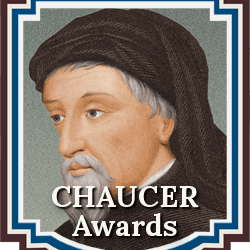
View On WordPress
#1600s#ancient history#Book Award Program#book awards#CAC#Chanticleer Authors Conference#Chanticleer Book Awards#Chanticleer Int&039;l Book Awards#Chanticleer International Book Awards#Chaucer Awards#CHAUCER BOOK AWARDS#Chaucer Contest Update#Chaucer Long LIst#CIBAs#CIBAs Book Awards#Classical#Dark Ages and Medieval Europe#Elizabethan#Historic Novel Society#Historic Writers of America#Historical Fiction Awards#Historical Fiction contests#Historical Novel Society#HNSA#HWA#including pre-history#Pre-1750s Historical Fiction#Pre-1750s Historical Fiction Book Awards#Prestigious#Renaissance
0 notes
Text
since we're all talking about eclipses let me share my favourite eclipse fact: the mystery eclipse of 811
eclipses were pretty noteworthy in the middle ages, as were all movements of the heavenly bodies - particularly for calculating the date of easter (which is determined by the lunar cycle, following the calculation of passover).
a list of eclipses can be found in a few manuscripts produced between 809 and 812 in the carolingian empire, and it's broadly accurate. the entries record the date and time of the eclipse, as well as its location in the sky, as for the eclipse of 807: "In 807, there was again an eclipse of the Sun on 11 February in the 26th part of Aquarius around the sixth hour of the day." (this is correct for the year 807, and was probably a record of a past event.)
however, one entry simply reads: "In 811, there was an eclipse of the Sun on 27 April, in the first hour of the day." NASA records show when historical eclipses occured, and there was no eclipse visible in Europe in the year 811. But there was an eclipse that year - in Australia (on the 26th of May).
So the list wasn't a record of observed eclipses, but a list of predictions - using the easter table and some very good maths, the author was able to calculate when future eclipses would occur, even in places where nobody from europe had ever been. the location wasn't included, because they knew that the constellations would look different in the southern hemisphere.
this all goes to show that medieval people weren't stupid - their understanding of the world may have been vastly different from our own, but they were just as curious as anybody else at any other point in time. dismissing the middle ages as a 'dark age' when knowledge was stunted by belief fails to see how wonderful the middle ages can be - how people have always been brilliant, and curious, and have sought out new knowledge, all through history.
(this info comes mainly from a blog post by the wonderful james t. palmer, which is here, and has some more source links. ive also heard about it in papers/wider reading but i cant give a source for those)
643 notes
·
View notes
Text
"Burginda’s letter is instructing the young man in his spiritual endeavours, and the contents of the (albeit short) letter reveal that she was highly educated and well-read. Written in a period that many still refer to erroneously as an intellectual ‘Dark Ages’, Burginda’s letter uses Greek words, utilises biblical exegesis, imitates Christian poetry like the fifth-century Psychomachia of Prudentius, and references both the sixth-century Italian poet Arator and the classical Roman poet Virgil. It also contains a reworking of a description of heaven found in a Latin poem from Africa that dates to c. 500. Burginda was clearly a very well-read intellectual.
This letter can be used as an example to refute many popular misconceptions about the early middle ages. The first misconception is that antique texts were neglected or unknown in this period. The second misconception is that medieval women were uneducated and unintellectual. The third misconception is that there was little or no intellectual transmission between Africa and Europe in this period. Burginda’s letter proves all these assumptions false. Not bad for two paragraphs of Latin."
#burginda#history#women in history#women's history#8th century#england#english history#female writers#herstory#middle ages#medieval#medieval women
508 notes
·
View notes
Link
Growing up, I was already interested in the Middle Ages and other eras of history. A common phrase that I heard people say was “the Dark Ages,” which they used to refer to either the first few centuries of medieval times or the entirety of the time period. I have known for a long time that this terminology is considered obsolete by modern scholars, but it is still a term that I hear. This article that I read recently does a good job of explaining the history of past historians calling various parts of medieval history “the Dark Ages.” It also discusses why, for the most part, they have now eventually rejected the phrase. To quickly summarize, it began with figures in the Protestant Reformation creating a negative term for what they perceived as an era of Catholic domination. Later, Enlightenment thinkers glamorized Ancient Rome and lamented the destruction of its achievements. Modern historians acknowledge that many aspects of society worsened greatly at the start of the Middle Ages, yet they feel it inappropriate give an entire time period such a label. There were still technological and other accomplishments, such as advances in agriculture including the heavy plow and the horse collar.
#academic debate#agriculture#ancient rome#article#dark ages#debate#enlightenment era#europe#historical debate#historiography#history#interesting#medieval#medieval era#middle ages#reassessment#reformation#scholarship#society#terminology
0 notes
Note
Hello! I’ve been seeing a lot about your work on social media lately and would love to read your books. What series do you recommend I start with?
Thanks ☺️
That depends on your taste/interest. I don't really write the same kind of thing from series to series, because I get bored easily and often want to try new subgenres/styles/etc. So I'll just briefly list my series and you can pick the one that appeals the most.
There's the Inheritance Trilogy, (link goes to the first book) my first published novels. A secondary world that has enslaved its own gods deals with the repercussions of that, from the POVs of three mortals. There's an overarching plot arc for all three books -- and there are some side-stories for this trilogy, too -- but each has a different narrator and takes place at different times. First person past tense, if you care about that sort of thing. (I don't, but some people seem weirdly attached to/repulsed by particular persons/tenses, so I'm including that info here.)
Then there's the Dreamblood Duology, which were actually written before the Inheritance books but I couldn't get them published at first because publishing in the 2000s was hella racist, basically. (I know, it hasn't changed much... but that little bit of change was enough for me to break in.) These books are as close to traditional fantasy as I'm probably ever going to get, except that they take place in faux ancient Egypt instead of faux medieval Europe. The story follows priests of the dream goddess as they're forced to deal with a conspiracy that threatens to inflict horrors on their society. Third person past tense for both books.
Next up is the Broken Earth trilogy. That's my experimental one, with first, second, and third-person POVs, present tense, a completely non-Earth world, and some heavy themes. All three books form a single story spanning, oh, forty thousand years or so, but mostly they're centered on one incredibly angry middle-aged mother who is on a roaring rampage of revenge/revolution. Features earthbenders, anti-magic groomers, magic statue people, and the apocalypse (again). Lots of "dark" themes and horror moments (harm to children, systemic bigotry, people-eating bugs, more).
My most recent books are the Great Cities duology. Urban fantasy set in modern-day New York, third person multiple POV ensemble cast. Turns out cities come to life once they hit a certain point, and then they claim a human avatar to represent and protect them. New York turns out to have six. It's also got some very unwanted tourists in the form of Lovecraftian entities that are trying to destroy it, along with reality as we know it. I meant for these to be lighthearted and silly and I think they kind of are, but there are still some notable political elements in them. (I mean, it's set in modern-day New York, and I started them the year Trump got elected, so...) It's lighthearted for me, anyway.
So, pick your poison!
347 notes
·
View notes
Text
994 notes
·
View notes